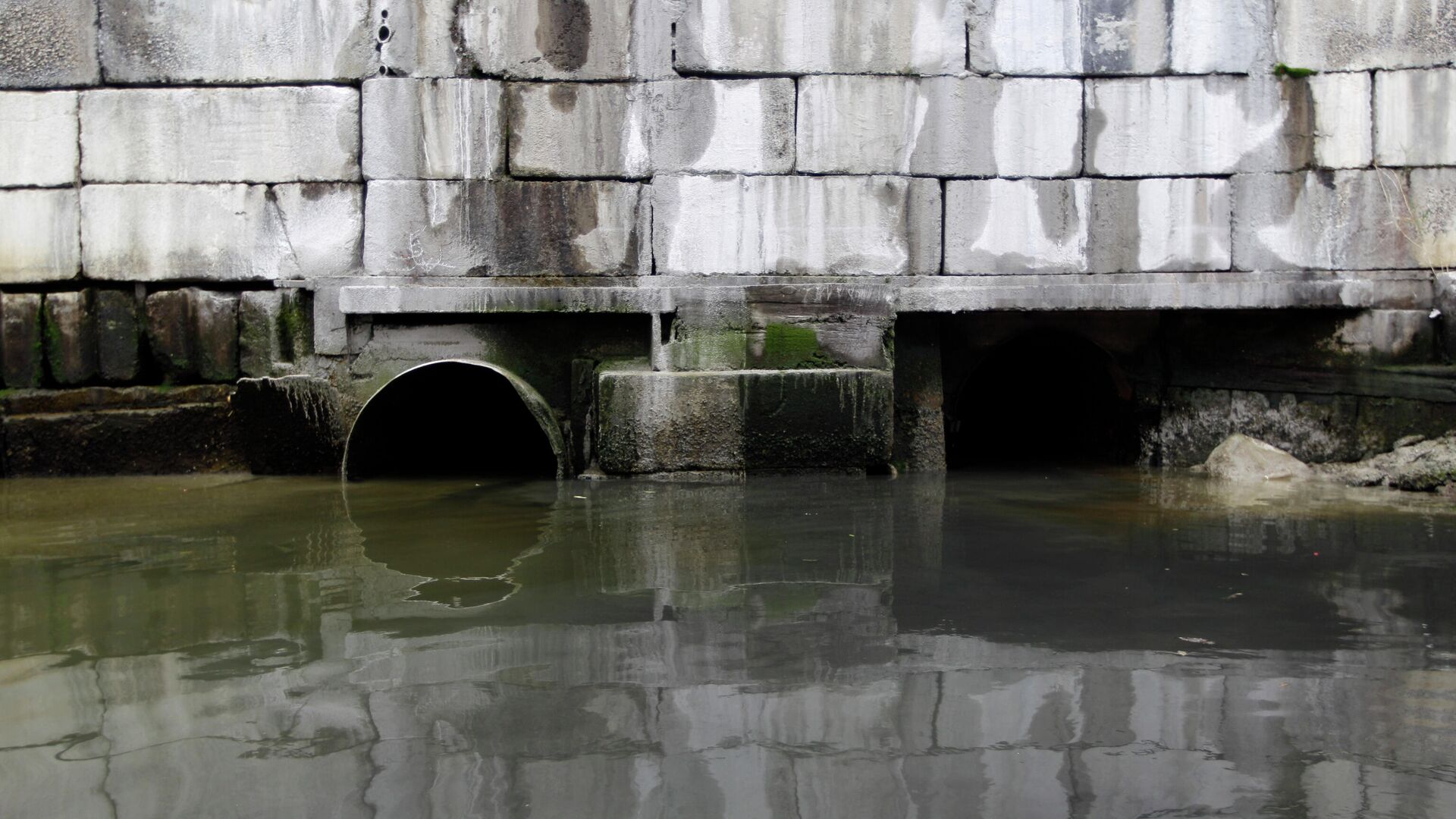https://sputnikglobe.com/20220204/drains-and-strains-new-york-city-sewage-emerges-as-cradle-for-unknown-covid-variants-1092745358.html
Drains and Strains: New York City Sewage Emerges as Cradle For Unknown COVID Variants
Drains and Strains: New York City Sewage Emerges as Cradle For Unknown COVID Variants
Sputnik International
US health experts and scientists have already drawn attention to sewage systems as possible source of samples that could help identify new strains of... 04.02.2022, Sputnik International
2022-02-04T10:57+0000
2022-02-04T10:57+0000
2022-02-04T10:57+0000
us
science & tech
covid-19
nyc
https://cdn1.img.sputnikglobe.com/img/07e6/02/04/1092745786_0:160:3073:1888_1920x0_80_0_0_c587f4c00acde5011801af96d9cd86b5.jpg
A team of researchers from several US universities has detected what it called "cryptic SARS-CoV-2 lineages" in New York City's wastewater - something that could signal a new COVID-19 variant looming.The findings were published in Nature Communications on Thursday, with the researchers not ready to immediately clarify the origin of the COVID mutations that have not been displayed in human patients yet.The two major suggestions the team offered were that the mutations may come from previously unsampled human COVID-19 infections and that one has to look for the source in virus-infected animals.Michael Lanza, a spokesman for the New York City Department of Health and Mental Hygiene, told The New York Times that medical experts "have not seen these variants among clinical patients in NYC".The areas of the city where the new strains have been found were not disclosed.In early January, US health experts pointed at sewage systems as areas of focus in their future investigation of coronavirus and how it is spread. Dr. Amesh Adalja, a senior scholar at the Johns Hopkins Center for Health Security, said that wastewater is going to be "a leading indicator for what's going on in a given community and what's to come".Sewage monitoring can prove particularly difficult due to the fact that the wastewater can contain information that clinical studies can lack, because not every coronavirus case receives clinical attention, as sometimes one can get infected but have mild symptoms or none.
nyc
Sputnik International
feedback@sputniknews.com
+74956456601
MIA „Rossiya Segodnya“
2022
News
en_EN
Sputnik International
feedback@sputniknews.com
+74956456601
MIA „Rossiya Segodnya“
Sputnik International
feedback@sputniknews.com
+74956456601
MIA „Rossiya Segodnya“
us, science & tech, covid-19, nyc
us, science & tech, covid-19, nyc
Drains and Strains: New York City Sewage Emerges as Cradle For Unknown COVID Variants
US health experts and scientists have already drawn attention to sewage systems as possible source of samples that could help identify new strains of coronavirus. It appears that their increased focus on runoff was not in vain.
A team of researchers from several US universities has detected what it called "cryptic SARS-CoV-2 lineages" in New York City's wastewater - something that could signal a new COVID-19 variant looming.
The findings were
published in Nature Communications on Thursday, with the researchers not ready to immediately clarify the origin of the COVID mutations that have not been displayed in human patients yet.
"These lineages contain mutations that had been rarely observed in clinical samples, including Q493K, Q498Y, E484A, and T572N and share many mutations with the Omicron variant of concern," the research team wrote. "Some of these mutations expand the tropism of SARS-CoV-2 pseudoviruses by allowing infection of cells expressing the human, mouse, or rat ACE2 receptor."
The two major suggestions the team offered were that the mutations may come from previously unsampled human COVID-19 infections and that one has to look for the source in virus-infected animals.
Michael Lanza, a spokesman for the New York City Department of Health and Mental Hygiene, told
The New York Times that medical experts "have not seen these variants among clinical patients in NYC".
The areas of the city where the new strains have been found were not disclosed.
In early January, US health experts
pointed at sewage systems as areas of focus in their future investigation of coronavirus and how it is spread. Dr. Amesh Adalja, a senior scholar at the Johns Hopkins Center for Health Security, said that wastewater is going to be "a leading indicator for what's going on in a given community and what's to come".
Sewage monitoring can prove particularly difficult due to the fact that the wastewater can contain information that clinical studies can lack, because not every coronavirus case receives clinical attention, as sometimes one can get infected but have mild symptoms or none.

